- Home
- Tim Lebbon
The Everlasting Page 4
The Everlasting Read online
Page 4
Scott stands and backs away from where the old man is looking. “Papa,” he says, and it must be the sound of desperation in his voice that brings Papa around.
The old man stands, shakes his head, and closes his eyes briefly once more. Then he walks toward Scott.
Scott backs away.
Papa pauses, frowns, then reaches out for his grandson. “I would never, ever hurt you,” he says, and he hugs the boy close.
“You scared me.”
“It’s right to be scared.”
“Why?”
“The world is a scary place.”
Scott sobs, only once, but enough to elicit a tighter hug from his grandfather.
“You need to know,” the old man says. “I won’t be here forever, and you really need to know.”
“What if I don’t want to know?”
Papa laughs briefly, then says no more. Scott cannot see the old man’s face. For once he is glad.
Scott started awake, and he thought the sound he heard was his own startled shout. He sat up on the settee and rubbed his eyes. On the TV screen someone was screaming, and at the window the rosebush still caressed the glass.
What was he going to tell me? he thought. He could not remember. The fresh memory of the forest and what his grandfather had said was strong, but there was nothing beyond that hug. Maybe we just went home. Maybe he didn’t tell me anything at all.
He stood and went upstairs to the toilet, looking through the open window as he urinated. The slice of garden he saw seemed quiet and peaceful, but he wondered whether the rest of the garden was quite so innocent. Perhaps it knew when he was watching and shifted to suit his gaze. He finished, flushed, and went into the spare bedroom, and from there the whole back garden was laid out to his view.
Still silent, still wrong. It was as though the garden were watching him. He turned to walk from the window and spun around again. Nothing changed, and he smiled nervously.
Downstairs, he went to the kitchen to switch on the kettle. The small side window opened out over the patio, and Scott stood there as the kettle bubbled and boiled behind him.
Something moved. He edged back from the window, startled and confused. Nothing had moved out in the garden, of that he was sure, but there had been a definite sense of shifting across his vision. He closed his eyes briefly and opened them again, wondering whether he had dust or an eyelash in there. But there was no pain, no discomfort. He turned to open the fridge, his view of the sun striking the window adjusted slightly, and then he saw.
The dust on the outside of the window was moving. It coalesced into separate islands like scum on a pond, then shifted as though pushed by an unseen current. There was no sound. It stopped moving, leaving erratic new shapes for the sun to reveal, then started again. Smeared, pushed, pulled across the glass, it was still shifting when Scott turned and fled from the kitchen.
His heart was thumping. What could do that? Sun, wind, moisture in the air, light refracting through deformed glass . . . He stopped in the hallway and leaned against the wall. He was spooked, working himself up into a state of panic. And there was really nothing wrong.
(Apart from the broken drawer lock.)
Nothing strange outside, and only his own fear inside. Could fear change surroundings? He supposed so. Perception was a strange thing, and he knew it could be altered by moods, tiredness, and dread.
(But the lock. I saw the lock.)
He heard a car pull up on the gravel driveway and hurried to the front door. Through the vertical blinds at the side window he saw Helen’s Astra shift slightly as she stepped out and closed the door behind her. It was early, but he was so glad that she was home that he did not wonder why.
Scott went to open the front door, and then saw the look on Helen’s face. She was glancing around, down at the ground and up at the sky, toward the house and into the bushes bordering the driveway. She was frowning. As she remote-locked the car, her other hand waved around her head, as if to knock away a fly or a bee. Scott saw nothing there.
He opened the door, trying to reign in his relief at her return. “Home early.”
Helen’s face changed when she saw him. She smiled. It touched her eyes and went some way toward removing the worry there, but it also left some behind. She was troubled, and Scott did not like that one bit.
“I can’t get that damn letter out of my head,” she said. “And you sounded down on the phone, so I came home early.”
“Thanks.” Scott reached out and hugged his wife, kissing her on the cheek. He looked over her shoulder into the front garden. The light fell as it should, the shadows dwelled where they belonged, a few birds skittered around in their Kilmarnock tree. But everything was wrong. If he stepped out there, he could be changed forever.
He shivered and knew that Helen had felt the movement.
“Let’s go in,” she said. “We’ll cook a nice dinner and open a bottle of wine.”
“Sounds good,” Scott said. Helen moved past him into the house, and he did not turn his back on the front garden until the door was shut and bolted from the inside.
Scott did not mention the broken drawer, but he did let Helen read the letter again. She seemed troubled, but her reaction was similar to before.
“So what do you see when you read it?” he asked.
“None of it seems to make sense to me,” she said. “It’s . . . confused. He must have been in a very strange state of mind when he wrote it.”
“Must have.”
“What about you? When you read it?”
Scott did not answer, but he could not hide his own confusion over what he was feeling, seeing, remembering.
“Must be strange for you,” she said softly. “Must make you quite emotional.”
“Yes, quite.”
“Well, let’s forget about it for now, go and—”
“What was wrong when you got out of the car?”
Helen sat up straight on the settee, staring up at Scott where he stood before her.
“You looked worried about something. Nervous.”
“You were watching me?”
He nodded.
“That explains it. Felt like I was being watched. And I was.” Helen stood and went out to the kitchen, leaving Scott trying to figure out whether that explained anything at all.
Against all odds, Scott enjoyed their meal. They spent time in the kitchen chopping peppers, spring onions, and mushrooms, stir-frying chicken and sweet and sour sauce, boiling rice, and stirring everything into a tasty dish that went well with a glass of red wine. The kitchen filled with steam and the smells of cooking, and as they sat at the table to eat Scott noticed that the steam had condensed on the window, and the view out into the garden was now hidden. He was glad.
The wine settled his nerves and dulled his heightened senses. The food tasted good. He and his wife succeeded in not chatting about the letter all through the meal, and even though Scott felt it folded into his back pocket, he did not dwell on the broken drawer. In denial, he thought once. But it seemed to be working, so he went with the flow.
It had turned six o’clock by the time they finished. Helen ran hot water into the sink while Scott cleared the work surfaces, and within ten minutes they had tidied the kitchen and retired to the living room. They sat close together on the settee, Scott’s hand on Helen’s thigh, Helen leaning against his arm. Their wine-glasses were replenished, and Scott felt a comfortable buzz. It was still early, but he looked forward to an evening of wine, a DVD, and perhaps lovemaking later. It was at times like this that he appreciated the simple goodness in life.
“One phrase in that letter . . .” Helen began.
“Hmm?” Scott was annoyed that she’d brought it up again, but at the same time he knew that it was inevitable. She had come home early because of the way he had sounded on the phone, and he’d sounded scared because he’d spooked himself. One last trick from Papa, perhaps. It had been intended for him almost three decades ago, but even after all these years Papa could fool him.
“Where he talks about the Chord of Souls. And surrounds that name with those symbols.”
“Yes.”
“What was that?”
The new memory from that afternoon floated back to him, where Papa mentioned the song from the Chord of Souls . . . and then that weird, almost animallike series of sounds he had made. “I’m not sure.”
Helen shifted, moving away slightly so that she could turn to look at him. “Really?”
Scott nodded. Shrugged. “Well . . . I think it was a book. But I don’t know which one.”
“Why do you think it was a book?”
“Something Papa said to me once.”
“What?”
“I can’t remember!” he snapped, immediately regretting it. “Sorry. Just . . . something about something he’d found out in the desert. It was just a story.”
“You’re sure?”
“Yes. No. Everything with Papa was strange.”
Helen was silent for a while, sipping her wine and staring at the blank TV screen. Scott could see them both reflected in there. When he was a kid he’d believed that his reflection was another person.
“He talks about it in the letter as though it’s still around,” she said.
Scott nodded. But he thought, Is that what he really says? And the letter was a shape in his pocket, yearning to be read once again.
The doorbell rang. Scott jumped, but Helen was on her feet before him. He followed her into the hallway, and the instant he left the living room dread clasped hold of him. Don’t answer, he thought. Don’t go, don’t go. He was trying to speak those words, but something had happened to his mouth. He clasped the wineglass in his right hand and heard a tink as it cracked.
Helen unlocked the front door and drew it open.
There was no one there. Day was slipping toward dusk, and trees and bushes made familiar shadows across their front garden. The Astra sat on the drive, glinting with a few diamond spots of rain.
There was no one there, but Scott was so desperate for Helen not to move over the threshold that he stepped forward and grasped her arm.
“Ouch!” She pulled away, catching sight of the cracked wineglass spilling wine onto his right sleeve. “What have you done?”
“Glass broke.” Scott was staring out into the garden, trying to use the failing daylight to discern just what was wrong out there. Or is it all in here? he thought, not sure whether he meant the house or somewhere even deeper.
He could feel the letter creased against his buttock.
“Get to the kitchen; you’ll stain the carpet!” Helen was already trying to steer him inside, and for that he was glad. She swung the door closed behind her.
“Lock it,” he said.
“Scott—”
He backed along the hall, holding his arm up so that his sleeve soaked up most of the spilling wine. “Lock it, please.”
She locked the door, and Scott turned and hurried into the kitchen. By the time Helen stood beside him at the sink, he’d put down the glass and was dabbing at his shirt with a damp cloth. He took it off, Helen soaked it beneath the tap, and then he heard the sound of something scoring across a pane of glass.
“I fucking hate that!” Helen said, wincing.
“The living room.”
“That bloody rosebush of yours.”
Scott turned and went back into the living room, still topless. His belly swung over his belt, handles bulging at his hips. He hated being naked, even if it was only Helen who saw. He could have been so much better. There’s so much more to see, Papa had said. This world’s just a veil.
“Damn it, Papa!” Something waved beyond the window, vanishing from view as if being drawn away.
“What?” Helen called from the kitchen.
“Nothing.” Scott’s heart was pummeling at his chest. He pulled out the letter, opened it, and read it again, and it mentioned the Chord of Souls, and he felt a sense of doom closing in around him, as though reading the letter was inviting in the same fate that had consumed Papa in the end. Murder and suicide. Perhaps the old man really had been mad after all.
Scott wondered whether insanity was hereditary.
Helen came in and surprised him by hugging him tight. “That was weird,” she said. “Maybe we need more wine?”
Scott nodded. “Maybe we do.”
Helen went back to the kitchen to choose a new bottle, leaving him alone in the living room. He approached the window. The silhouette of a bud-heavy stem of the rosebush rose and fell in the strengthening breeze, whispering across the glass. Whispering, not scoring. Not the rosebush, he thought.
He cupped his hands to the glass to cut out reflection from the living room light, held his breath, and pressed his face close.
He remembered Papa sitting on that fallen tree, the whisper of wood ants hanging on his every word.
A car passed beyond their garden, and Scott grasped at the normalcy of the scene. Mrs. Hacker from along the street was walking her dog. She was a beautiful woman who thought herself ugly, and Scott had always perceived a sense of tragedy about her.
Papa staring into the distance before lowering his head, closing his eyes, uttering those strange words.
The street scene was completely normal, but that was beyond the garden. It could have been a whole world and thirty years away. Scott closed his eyes and, as that long-ago scene played out in his memory, he matched the words and tune Papa had uttered word for word. It felt strange, twisting his lips and tongue and throat in strange shapes, making it feel as though he had something in his mouth, something alien that did not belong there, but which he himself had deigned to swallow.
He opened his eyes. And screamed.
The garden was full of dead people.
Helen shouted something, came at him with hands held out and eyes wide, but for those first few moments Scott could not hear her. Perhaps in her terror at his sudden cry she could not form words. That, or the blood pounding in his ears had stolen his hearing.
It was still his front garden. He recognized the plant pots in the shape of Wellington boots, the inexpertly trimmed bushes, and the gate with one broken hinge. And beyond the garden the world was still there; Mrs. Hacker was in the distance now, and Scott could still see her casually wild brunette hair farther along the street, and neighbors’ cars sloping into and out of the gutter.
But standing in the garden were monochrome images of people he had never known, and none of them were alive. He would have known that even if it were not for the evidence of their deaths: fractured skulls, ruptured chests, pale, drawn faces still twisted with the pain of their final moments. A few of them looked almost serene, but their eyes always bore the truth. These ghosts were haunted.
None of them were completely motionless. A few wavered in his sight, as though distorted by heat haze. One or two swayed where they stood, like drunks at the end of a long, dark night of obsession and addiction.
Others were moving slowly toward the house.
Scott gasped and tried to scream again, but his throat had dried and it came out as a pained rasp. Helen grabbed him and he jumped, pulling away from her and searching her eyes for life. He found it and gave in to her hug. She pulled him close, squeezed tight, and her body warmth was welcome.
“What is it?” she asked, still a whisper.
Scott could barely shift his gaze from the garden. They were all looking at him.
“Scott?” Louder this time, as though his shock were fading.
“In the garden,” he said, though that explained nothing. He tried to pull away, but Helen had him tight. “In the garden!”
“There’s nothing there,” she said.
One of them—an old woman—had raised her hand, leaning forward for support as she took hesitant steps across the lawn. She wore a shawl that should have been multicolored, but death had grayed it. A young man was one of those shimmering in Scott’s vision, features uncertain, leather clothing catching a weakened dusk, the wound on the side of his he
ad obvious even through distortion. His eyes were wide: terrified or angry.
“Dead people,” Scott said. “Ghosts.” But these were nothing like the time he had seen Lewis days after Papa’s death. He had been solid, tactile, there. “Wraiths,” he said, and that seemed to suit better.
“There’s nothing out there, babe.”
Scott closed his eyes for a few seconds, hoping he could refresh his vision. When he opened them again something had changed, and it took him a few seconds to make out what: that shimmering, heat-haze effect had transferred to a few more of the wraiths.
He shut his eyes again, fighting every second to keep them closed against the idea that the wraiths were advancing, using his momentary lack of vision to close in on the house and Helen and him, and perhaps while he was not looking their bearing would change, anger overcoming lethargy, and violence born of anger—
Helen tried to pull him out of the living room, and he looked again. They were fading. Those that had been wavering to begin with were almost gone, and the others were starting to lose definition. Two that had been moving slowly forward stood directly outside the window now, pressing ahead as though leaning on the glass. Their features were blurred and confused.
He closed his eyes, whimpering and desperately grateful for Helen’s clasp. When he looked again most of the wraiths were gone, and those that remained were shadows on the air.
Scott started to cry.
“What is it, babe?”
“They’re almost gone,” he said, gasping through his tears.
“Good. That’s good.”
Scott shook his head and started to shiver. “I can’t see them anymore,” he said, “but they’re all still there!”
He pulled away from Helen and she let him go, following him back into the hallway to the bottom of the staircase, where he sat and curled up and tried to remember exactly what Papa had told him about life and death.
“I want to run,” Scott said. “I want to run away and find somewhere safe.”
“We’re safe here.” Helen had barely left him untouched since he had seen the ghosts, leaving only to fetch a clean shirt. She did not believe him—that was obvious, and understandable—but she was with him, and he loved her for that.

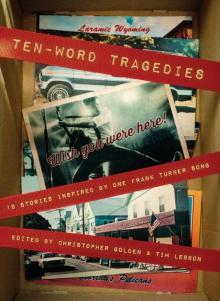 Ten-Word Tragedies
Ten-Word Tragedies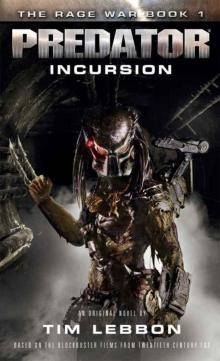 Predator: Incursion
Predator: Incursion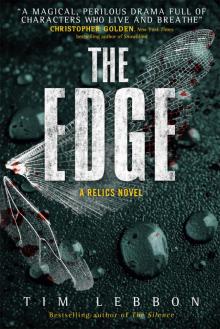 Relics--The Edge
Relics--The Edge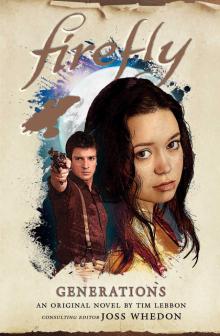 Firefly
Firefly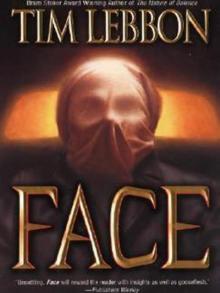 Face
Face Generations
Generations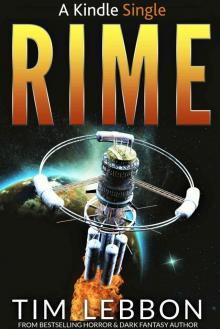 RIME (Kindle Single)
RIME (Kindle Single) Fallen
Fallen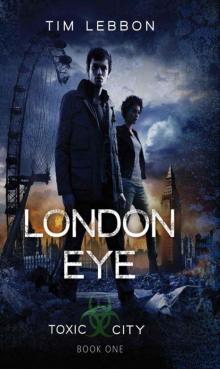 London Eye tc-1
London Eye tc-1 Kong: Skull Island
Kong: Skull Island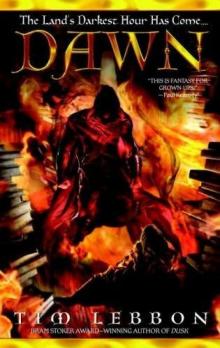 Dawn n-2
Dawn n-2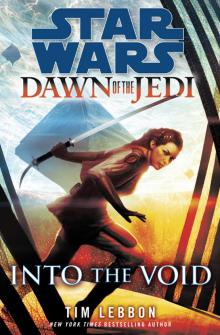 Into the Void: Star Wars (Dawn of the Jedi)
Into the Void: Star Wars (Dawn of the Jedi)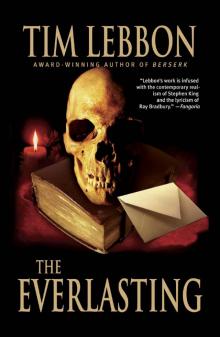 The Everlasting
The Everlasting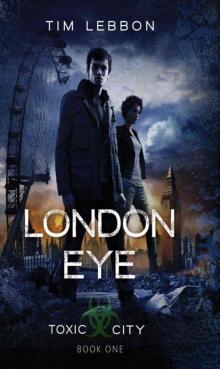 London Eye: 1 (Toxic City)
London Eye: 1 (Toxic City)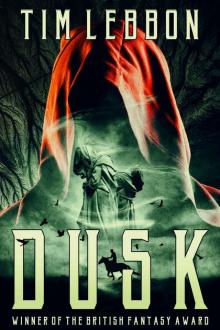 Dusk: a dark fantasy novel (A Noreela novel)
Dusk: a dark fantasy novel (A Noreela novel)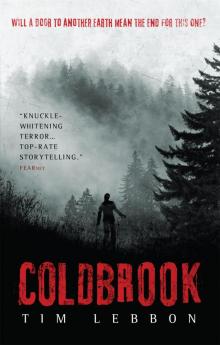 Coldbrook
Coldbrook Alien
Alien Dusk
Dusk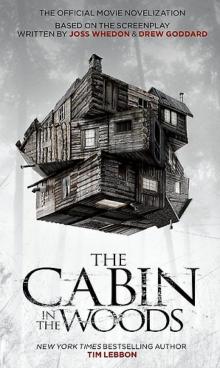 The Cabin in the Woods
The Cabin in the Woods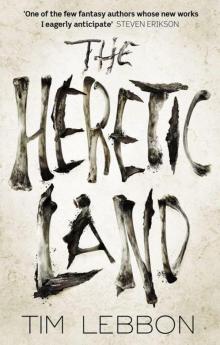 The Heretic Land
The Heretic Land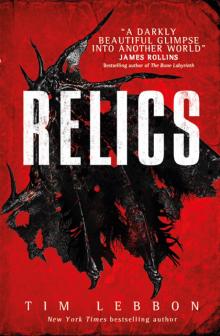 Relics
Relics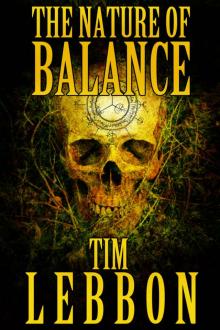 The Nature of Balance
The Nature of Balance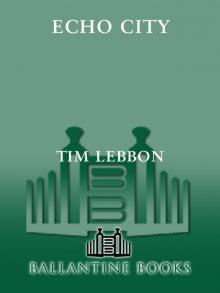 Echo City
Echo City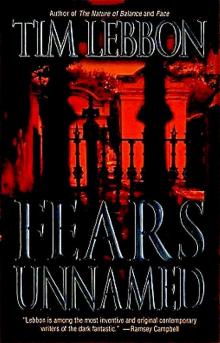 Tim Lebbon - Fears Unnamed
Tim Lebbon - Fears Unnamed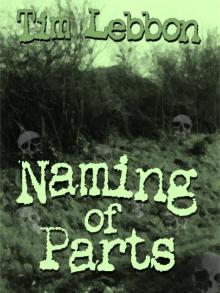 Naming of Parts
Naming of Parts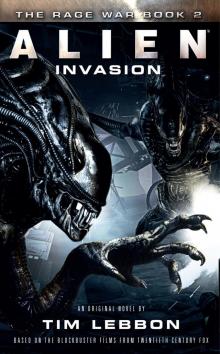 Alien--Invasion
Alien--Invasion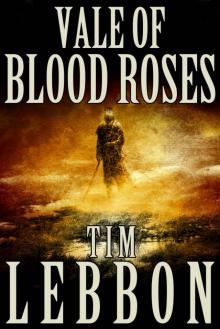 Vale of Blood Roses
Vale of Blood Roses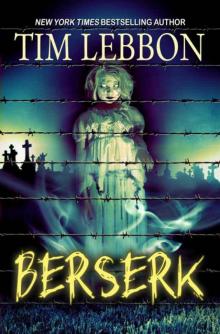 Berserk
Berserk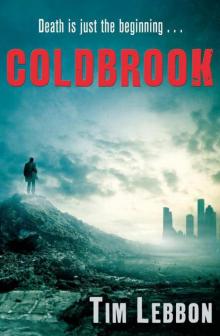 Coldbrook (Hammer)
Coldbrook (Hammer)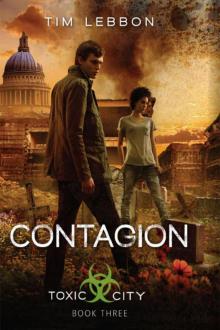 Contagion tc-3
Contagion tc-3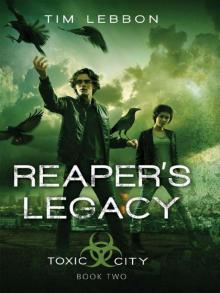 Reaper's Legacy: Book Two (Toxic City)
Reaper's Legacy: Book Two (Toxic City)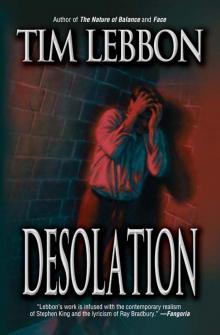 Desolation
Desolation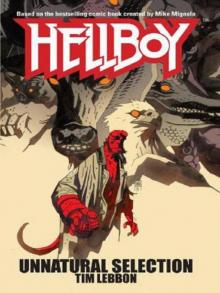 Unnatural Selection
Unnatural Selection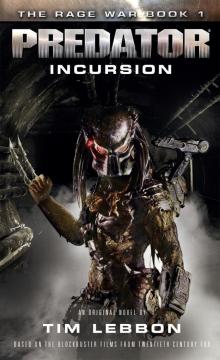 Predator - Incursion
Predator - Incursion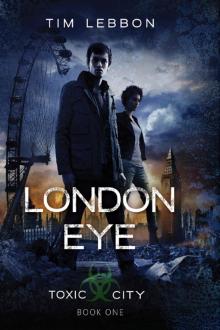 London Eye
London Eye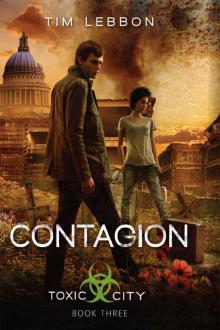 Contagion (Toxic City Book Three)
Contagion (Toxic City Book Three) The Silence
The Silence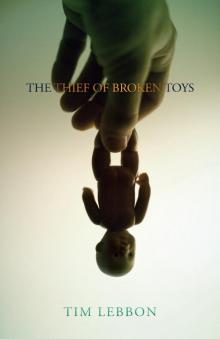 The Thief of Broken Toys
The Thief of Broken Toys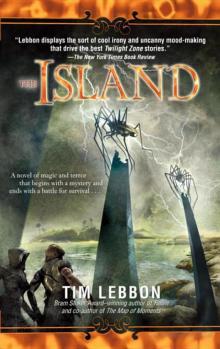 Tales of Noreela 04: The Island
Tales of Noreela 04: The Island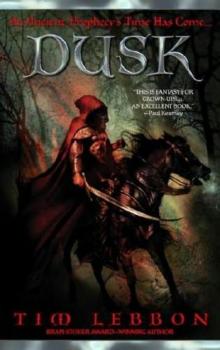 Dusk n-1
Dusk n-1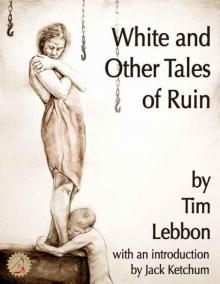 White and Other Tales of Ruin
White and Other Tales of Ruin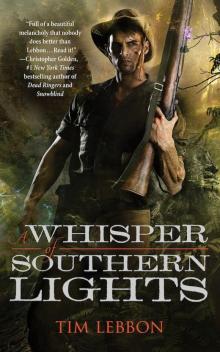 A Whisper of Southern Lights
A Whisper of Southern Lights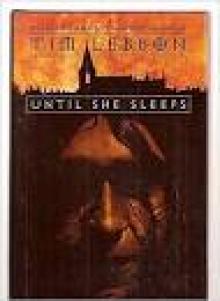 Until She Sleeps
Until She Sleeps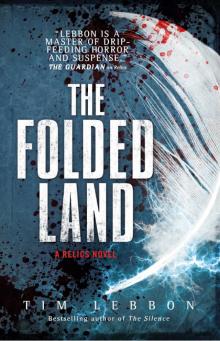 Relics--The Folded Land
Relics--The Folded Land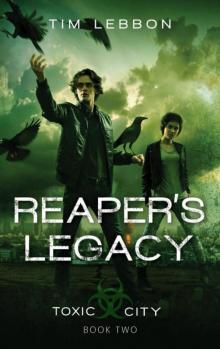 Reaper's Legacy tc-2
Reaper's Legacy tc-2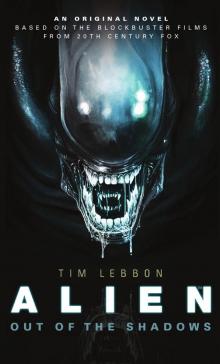 Alien: Out of the Shadows
Alien: Out of the Shadows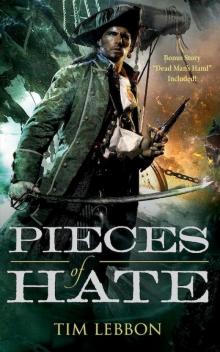 Pieces of Hate
Pieces of Hate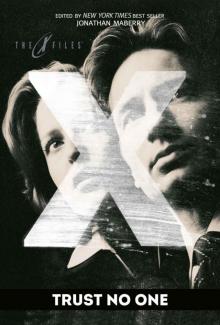 X-Files: Trust No One
X-Files: Trust No One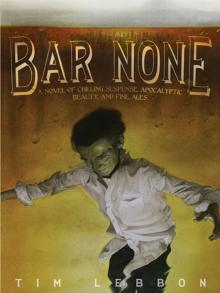 Bar None
Bar None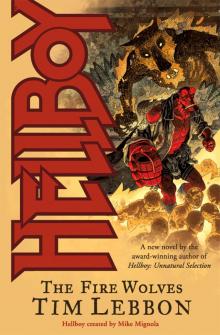 The Fire Wolves
The Fire Wolves